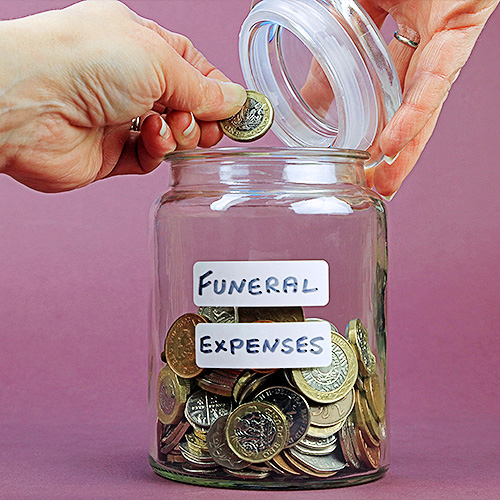How to leave money for your funeral
By having a plan in place to pay for your own funeral, you can leave your family some peace of mind at a difficult time.
Why you should plan to leave your funeral covered
It can be difficult to think about what will happen when you pass away, but planning for your own funeral and leaving money behind to cover it means there’s one less thing for your family to deal with at an already difficult time.
- Planning and paying for your own funeral allows you to make sure you’ll have the sendoff you wanted, without your family having to foot the bill or make any difficult decisions.
- One of the things you’ll have to plan for, no matter how small you’d like your funeral to be, is your burial or your cremation. This will have to take place within days of you passing away and, if you don’t leave money behind to cover it, the person organising your funeral will most likely have to pay for it.
- If you leave any debt behind when you die those debts will have to be paid off before your family can get any inheritance they’re due. This could mean that, if they were to cover the costs for your funeral, it could be months or even years until they’re reimbursed through their inheritance.
How you can leave money for your funeral
There are different ways you can plan to leave your funeral paid for when you die.
OneFamily Over 50s Life Cover
Our Over 50s Life Cover includes Funeral Funding, which lets the proceeds of your policy be paid out to a funeral provider when you die, with the provider also contributing £300 towards the cost of your funeral.
You stop paying into your policy when you hit age 90, but you’ll continue to be covered for life. Our policy also covers you in the case of a terminal illness diagnosis, with 100% of the policy being paid out if it’s been at least two years since you’ve opened it.

Our Over 50s Life Cover
Designed to give you and your loved ones peace of mind at a very difficult time, our Over 50s Life Cover can help you cover the cost of your funeral.

More on planning for the future
You may also be interested in:
What happens to debt when you die?
Your debts don’t die when you do. If you don’t plan ahead, they could affect what you leave behind for your family.
How to plan for your funeral
While it may feel morbid to plan your own funeral, it’s an act of kindness for the people left behind.
20 social networking sites, clubs and forums for over 50s
Joining new clubs and societies is a great way to get out there and meet new people.
How a junior ISA could help you save on inheritance tax
Junior ISAs allow you to put money away over time for your children and grandchildren.
